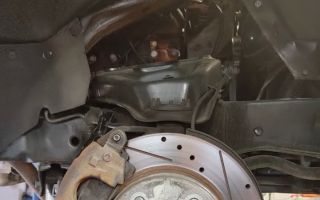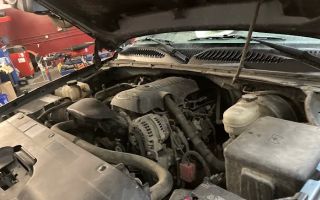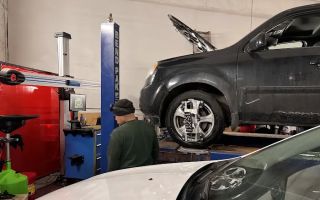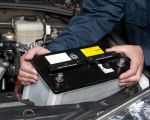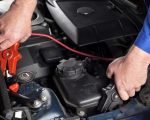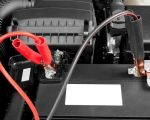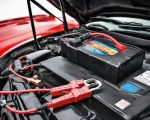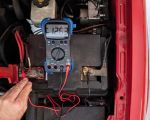What Should I Do if My Car Battery Dies Unexpectedly? A Comprehensive Guide
- 1. Why Car Batteries Die Unexpectedly
- 2. How to Diagnose a Dead Battery
- 3. What to Do When Your Car Battery Dies
- 4. Real-Life Experience: Dealing with a Dead Car Battery
- 5. When to Call for Towing or Roadside Assistance
- 6. How to Prevent Car Battery Problems in the Future
1. Why Car Batteries Die Unexpectedly
Car batteries are essential to starting your vehicle and powering electrical systems. A dead battery can occur without warning, leaving you stranded at the most inconvenient times. Understanding why car batteries die unexpectedly can help you prepare and take action before it happens.
Common reasons for a car battery to die unexpectedly include:
- Extreme Temperatures: Both hot and cold weather can affect battery performance. Cold weather can cause the battery's power to drop, while extreme heat can cause internal damage and shorten its lifespan.
- Old Battery: Car batteries generally last 3-5 years. As they age, they lose their ability to hold a charge, which increases the chances of them dying unexpectedly.
- Left Accessories On: Leaving headlights, interior lights, or the radio on while the engine is off can drain the battery overnight.
- Electrical System Issues: Sometimes, a faulty alternator or other electrical components can cause your car battery to discharge prematurely.
Identifying the root cause of your battery issues can help you address potential problems before they become major disruptions.
2. How to Diagnose a Dead Battery
If your car won’t start, the first thing to check is the battery. Here’s how you can diagnose a dead battery:
- Check the Dashboard Lights: If the dashboard lights dim or flicker when you turn the key, it may indicate a weak or dead battery.
- Try Jump-Starting: If your car doesn’t start, try jump-starting it with jumper cables and a second car. If the car starts, it's likely that the battery was the problem.
- Look for Corrosion: Examine the battery terminals for any corrosion, which could interrupt the flow of electricity and cause the battery to fail.
- Test the Battery Voltage: If you have a voltmeter, you can measure the battery’s voltage. A fully charged battery should read about 12.6 volts or higher. Anything lower indicates a problem.
Diagnosing a dead battery is usually straightforward, but sometimes other issues like a bad alternator may cause similar symptoms. If you're unsure, it's best to seek professional help.
3. What to Do When Your Car Battery Dies
If your car battery dies unexpectedly, follow these steps to get back on the road:
- Attempt a Jump Start: If you have jumper cables and access to another car, try jump-starting your battery. Be sure to follow the correct procedure to avoid damage to both vehicles.
- Use a Portable Jump Starter: If you don’t have another car available, a portable jump starter can be a lifesaver. These small, rechargeable devices can jump-start your car without the need for another vehicle.
- Check for Other Issues: If jump-starting doesn’t work, there could be other underlying issues with your car’s electrical system, such as a faulty alternator. At this point, you should contact a professional mechanic for a more thorough inspection.
- Call Roadside Assistance: If you're stuck and unable to get the car started, call roadside assistance for help. They can jump-start your battery or tow your car to a repair shop if needed.
These steps can help you resolve a dead battery situation quickly, but having the right tools and knowledge on hand is key to getting back on track efficiently.
4. Real-Life Experience: Dealing with a Dead Car Battery
Imagine you’re driving to work early in the morning, and suddenly your car won’t start. You try turning the key, but nothing happens. You check the dashboard—no lights, no sound. It’s a frustrating situation, especially when you're already running late.
What happened to Sarah, a busy professional, was exactly that—her car battery had died unexpectedly. Fortunately, she had a portable jump starter in her trunk, which allowed her to get the car started without having to wait for help. After a quick jump-start, she was back on the road in no time, but Sarah realized that having a reliable backup was crucial in case of emergencies.
This story highlights the importance of being prepared for unexpected battery failures, whether that means carrying jumper cables, using a portable jump starter, or having roadside assistance on speed dial.
5. When to Call for Towing or Roadside Assistance
If you're unable to jump-start your car or diagnose the problem, it might be time to call for towing or roadside assistance. Here are a few scenarios when you should consider getting professional help:
- Jump Start Doesn’t Work: If jump-starting your car doesn’t solve the issue, your battery may be severely damaged, or there could be another problem like a malfunctioning alternator.
- Inconvenient Location: If you’re stranded in an unsafe or hard-to-reach location, it’s safer to call for a tow truck or roadside assistance rather than attempt to fix the issue yourself.
- Repeated Battery Failures: If you find that your battery repeatedly dies, it may be time to replace it. A professional mechanic can help diagnose the problem and provide you with a solution.
Having access to a reliable towing service can save you time and stress when you're in need of help. At Rescue & Towing, we offer quick, efficient, and affordable towing services to get you back on the road safely.
6. How to Prevent Car Battery Problems in the Future
Preventing a dead battery is possible with a few simple maintenance steps. Here are some tips to keep your battery in good shape:
- Regularly Check Your Battery: Have your battery tested annually to ensure it is functioning properly and is not nearing the end of its life.
- Keep Battery Terminals Clean: Corrosion on battery terminals can prevent your car from starting. Clean the terminals periodically to ensure a good connection.
- Turn Off Electronics: Always turn off headlights, interior lights, and other electronics when you leave your car. This can prevent unnecessary drainage of your battery.
- Replace Old Batteries: If your battery is more than 3-5 years old, consider replacing it proactively to avoid unexpected failures.
Taking a few preventive steps can help you avoid the inconvenience and stress of a dead battery. Regular maintenance will keep your car running smoothly and minimize the chances of being stranded due to battery issues.
For more information or if you need roadside assistance, visit Rescue & Towing for all your towing and automotive help needs.







